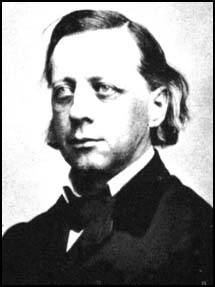Of Contradictions.

"As an antislavery advocate, Beecher was in on the ground floor of the founding of the Republican Party and did not hesitate to campaign for its candidates from the pulpit. He also pointed up the cruelty of slavery, for his parishioners and other Northerners, by holding mock slave auctions in his massive church--and using the affairs to raise money to buy the freedom of young female slaves who would otherwise be sold into virtual prostitution. Though Beecher was not the most radical of antislavery leaders, he was one of the most effective. Aspiring politicians such as Abraham Lincoln sought him out and welcomed his aid.
In "The Most Famous Man in America," Debby Applegate does not skimp in presenting the considerable evidence of Beecher's moral failings. In her telling, it is the story of someone from a rather austere background who yields to the temptations that accompany wealth and adulation.
Beecher became the confidant of several wives of his wealthy parishioners, and already by the early 1860s rumors circulated that he might have moved beyond the bounds of pastoral counseling. The relationships had intense spiritual dimensions, and he may have persuaded the women that physical consummation was justified by a higher spirituality that transcended legalism. In one case, Ms. Applegate suspects that Beecher was the father of a neighbor's daughter, a child with whom he always maintained an especially affectionate, grandfatherly connection..."

0 Comments:
Post a Comment
<< Home